This post was updated July 10 at 9:32 p.m.
UCLA School of Law students expressed concern over the future of reproductive and other human rights in light of the United States Supreme Court overturning Roe v. Wade.
On June 24, the Supreme Court reversed the 1973 Roe v. Wade ruling and ended the constitutional right to abortion. According to the court opinion delivered by Justice Samuel Alito, it is now up to the individual states to regulate or ban abortion.
Elaina Vermeulen, a law student, said that after hearing the court decision, she immediately thought of marginalized communities that face barriers to abortion access, such as incarcerated individuals, people on parole or probation, Black people and Native Americans.
“A lot of people still couldn’t get (an) abortion even when Roe and (Planned Parenthood v.) Casey were law,” Vermeulen added. “For example, people who are on Medicaid, because of the Hyde Amendment, they couldn’t pay for abortion.”
Medicaid is a federal and state-funded program that provides health care coverage to eligible low-income adults, children, pregnant women, elderly people and people with disabilities.
The Hyde Amendment, enacted soon after the 1973 Roe v. Wade ruling, bans federal funds from being used to pay for abortion except in cases of rape, incest or life-threatening pregnancy.
Reflecting on the ruling, law student Rebecca Rose said Alito and Justice Clarence Thomas have only viewed rights as fundamental if they are strongly rooted in the history and tradition of the U.S. Constitution. In comparison, more liberal justices often interpret fundamental rights differently as society progresses, she added.
Law student Lior Krancer said this originalist approach to the Constitution reflects outdated worldviews that are incompatible with today’s society.
“We should read the Constitution in a way that is relevant, not in a way that tries to romanticize, and be nostalgic and reinstate forms of this country that are something we should be ashamed of,” they said.
Some law students also voiced fears about other human rights potentially being affected by future decisions, as Thomas also said in his concurring opinion upon overturning Roe v. Wade that the court should reconsider the past court rulings of Griswold v. Connecticut, Lawrence v. Texas and Obergefell v. Hodges. The three cases pertain to the rights to contraception, same-sex intimacy and same-sex marriage, respectively.
“Those (cases) are the kind of big ones we learned about in constitutional law, but I imagine there are probably some smaller cases or cases they could apply the same notion of a fundamental right being so strictly construed,” Rose said. “There’s really no limit to what this court might try to do.”
Vermeulen, who identifies as queer, said the potential for restriction of LGBTQ+ rights is particularly concerning.
“It feels undeniably bad to know that there is possibly a future in our country where I, as a queer woman of color, don’t have access to some of the things that I’ve understood to be basic rights,” Vermeulen said.
Krancer, a co-president of the American Constitution Society chapter at UCLA – a progressive law organization – said they fear abortion will be federally banned in the future.
The Pew Research Center found in its polls from 1995 to 2022 that the percentage of American adults who believe abortion should be legal in most or all cases has consistently remained at or above 50% for all but one year, 2009, and has always surpassed the proportion who believe abortion should be illegal. Support for abortion is now at its highest recorded level, with 61% of respondents believing it should be legal.
“If we had a popular vote ballot initiative in this country about abortion, abortion would be legalized,” Krancer said.
Abortion is currently still legal in California, and on June 27, the state legislature passed Senate Constitutional Amendment 10, which would amend the state constitution so it includes abortion as a fundamental right that may not be denied or obstructed. This amendment will be up for public vote on the California midterm election ballot Nov. 8.
Rose, who is also a health care rights and access section intern at the California Department of Justice, added that there could be networks and organizations that support people looking for reproductive services in other states to receive donations.
Vermeulen, who is also one of the political activism chairs of the Womxn of Color Collective at the UCLA School of Law, also said language discussing abortion rights should be inclusive of cisgender women, transgender people, genderqueer, nonbinary and intersex people. She added that abortion rights are also related to other rights that affect a variety of people, such as those of detained immigrants who may not have access to abortion.
“I don’t think that these issues exist in a vacuum, totally divested of one another,” Vermeulen said. “Our struggles are often linked. … Until we center those people who are most impacted and most marginalized and ensuring that they themselves have access to full human rights, then we all wouldn’t and won’t be free.”
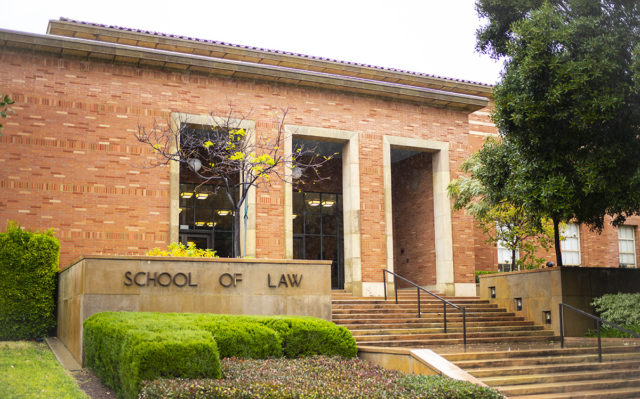

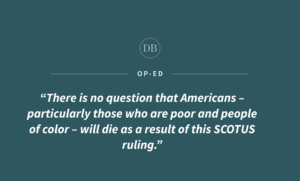
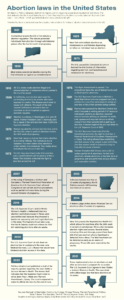
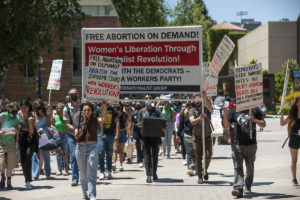
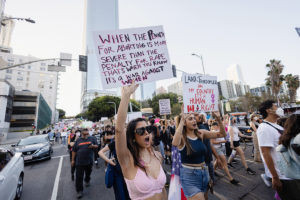
Comments are closed.